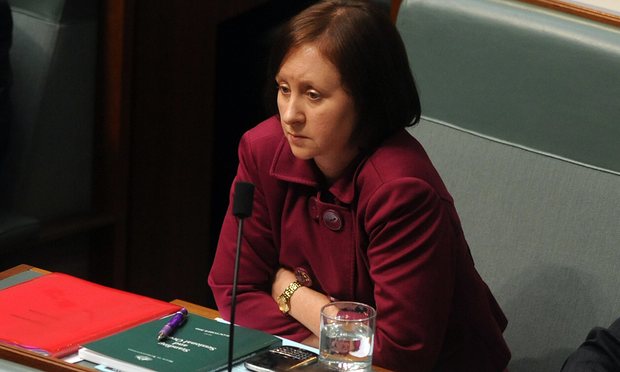Queensland Child Sex Abuse Victims Lose Chance to Challenge Past Compensation Claims
By Joshua Robertson
The Queensland government has dashed the hopes of child sex abuse victims that its bill to remove age limits on compensation claims would clear the way for fresh lawsuits against churches and schools. The government revealed it would not table laws to “remove past deeds” struck by institutions in lesser settlements based on the 21-year age limit on victims bringing civil actions. It cited potential “far-reaching and unintended consequences” of legislating to override legal barriers preventing repeat claims, saying a national redress scheme may be “more appropriate”. It follows the premier, Annastacia Palaszczuk, saying on Tuesday that the government would not use past deeds to block fresh claims by victims who had previously settled with state-run institutions. Advocates were also assured by Palaszczuk and the attorney general, Yvette D’Ath, that the bill to be tabled on 18 August would comply with key recommendations around the removal of time limits by the royal commission into institutional child sex abuse. They were that state and territory governments remove limits “with retrospective effect and regardless of whether or not a claim was subject to a limitation period in the past”. The Indigenous Lawyers Association of Queensland, in a letter to Palaszczuk noting that the Indigenous community in particular bore the scars of institutional abuse, said a failure to strike down past settlements meant “you will not have complied with the recommendations of the royal commission”. “The royal commission recommendations have clearly intended not to just remove time limits, but to remove all barriers which confront abuse survivors as they attempt to access justice through the Queensland courts system,” it said. “We draw your attention to the urgency expressly legislating to revoke past deeds of release as until that is the case you will not have removed time limits for any of these victims.” Indigenous lawyers encountered “recurring examples of the long-term damage inflicted upon individuals, families and communities as a result of child and sexual abuse”. “[The Indigenous Lawyers Association of Queensland] wish to clearly emphasise the contribution child sexual abuse and abuse generally have on the unacceptable levels of Indigenous incarceration in this country, which have been noted to have increased exponentially over the past 25 years,” it said. The association’s view on past deeds is reflected in a private member’s bill, drafted by the independent MP Rob Pyne with one abuse survivor and victims advocate. The survivor called on Palaszczuk to “stop playing politics with people’s lives” and adopt this measure of Pyne’s bill, whatever their political disagreements. He said the government had sought to “gazump” Pyne’s bill after getting wind of it, a bill he said was drafted only after “the apparent lack of action coming from the government on this important issue”. New South Wales and Victoria have both removed age limits on civil child sex abuse claims but excluded victims who had previously settled. The abuse survivor said this created “the bizarre scenario” where one abuse victim could “sue for full true damages” while another victim of the same abuse who was “brave enough to already try holding the institution to account is locked into his meagre and unjust settlement for life”. A statement from D’Ath’s office said: “For deeds where time limits were a factor that may have affected the quantum of damages, the options available under a national redress scheme may provide a more appropriate mechanism for survivors to seek just compensation from institutions than would be found through legislative means. “Any legislative attempt to remove past deeds entered into with private institutions has the potential to have far-reaching and unintended consequences.” This week the Palaszczuk government called for a national redress scheme, which hinges on the support of a federal government that has resisted the idea. Tens of millions of dollars in possible future civil payouts to victims of child sexual abuse will hinge on legal moves by Queensland institutions, including the state’s most prestigious school, Brisbane Grammar. The abuse survivor said the Queensland government’s explanation of its stance on past deeds was “rubbish” and a “defensive policy that protects guilty institutions at the expense of the needs of victims of abuse”. “It is not for the government – who is a perpetrator of state institutional abuse – to decide what is in the best interests of a victim of their abuse,” he said. “It is up to the survivor of abuse to decide if it is in their own best interest to pursue redress under a redress scheme or to pursue full quantum of damages by direct litigation.” The abuse survivor said Palaszczuk had already done “the hard work of convincing bureaucrats to expose the government to further financial liability for their abuses they have perpetrated in the past”. “The premier stated the government would choose to not use deeds as a barrier to relitigating as a policy,” he said. “If it’s good enough for policy, make it law. Legislate so that every institution is bound by the same principles.”
|
.
Any original material on these pages is copyright © BishopAccountability.org 2004. Reproduce freely with attribution.
